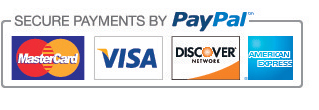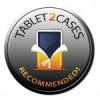Are You a Bad Parent If You Rely On Parenting Tech?
From the Wall Street Journal
Anxious to raise their kids the ‘natural’ way, many parents shun innovative gadgets that might make life easier. But some tech can be your ally, argues one new mom.
I NEVER EXPECTED to become an Army wife, but when you find the partner you want, you accept the sacrifices. When my husband was deployed again soon after our first baby’s birth, I was prepared for another six months alone.
Then our son stopped sleeping.
I did what a new parent does. I obsessed over the nursery’s temperature and the lullabies I sang (was “Yellow Submarine” too aggressive before bedtime?). I joined Facebook groups I’d once mocked, consulted friends and eventually hired a sleep coach via email, who considered our issues and sent back a sleep program. I scratched meticulous notes in a state of delirium: “Slept for 10 minutes, woke up fussing.” I was desperate and exhausted, a dogged investigator unable to connect the dots.
Months later, after my son began sleeping again, I discovered the Nanit Baby Smart Monitor (from $299, nanit.com), which uses computer vision and machine learning—terms I had to google—to record and analyze a baby’s sleep behavior and suggests tips via an accompanying app. In other words, it picks up the night shift.
I wished I could go back and gift my sleep-deprived self this slick device. But would I even have accepted the help of this fancy gadget? Back in those early months, I thought I should be able to ace the job of nurturing without tech support.
My anxiety around digital assistance is part of a bigger issue. Many of my parent peers—not to mention their own parents—think these high-tech devices and apps are cop-outs. They argue that “real parents” tough it without these innovations, like climbing Everest without oxygen.
Among the many reasons the baby tech industry’s growth has slowed—exorbitant prices, privacy concerns over hacked devices and shared data, a lack of women leading startups—I think there’s a strong sociological factor: a cultural shift back to “natural” parenting and the glorification in some quarters of the selfless mother. It perpetuates the notion that moms can and should do it all—all the time. While you’re busy applauding women’s efforts to be overachievers, you can’t wholeheartedly cheer on technology that would ease their burden.
I had convinced myself that raising my infant son was supposed to be a struggle, my contribution to doing it all, but it was messing with my mind. “I feel like I’m failing,” I’d confide in strangers pushing toddlers around Whole Foods. “That’s how you know you’re doing it right!” they said.
But I think we can find an equilibrium, using digital tools and resources to free up time and simplify the tedium so we can pick our heads up and be present.
“There are so many unknowns, so many questions about the baby’s schedule, feeding, diapering, weight gain,” said blogger Jeana Tahnk of the parenting site Top Tech Mom. “Adding tech into each of those facets can help, but can also send parents into an information vortex. There is a balance between relying on parental instinct versus relying on information from a mobile app for baby care.”
While many of us fling our arms wide open to the techiest new tools in other areas of life—does anyone really need a 3-D pancake printer in the kitchen?—an equal number reel in the enthusiasm for parenting gadgets. The skeptics seem to greet the most innovative devices with the most scorn.
Take the Snoo bassinet, created by pediatrician Harvey Karp, author of “The Happiest Baby on the Block,” designed to keep an infant safely rocking on his back throughout the night. Buzzfeed’s Facebook commenters lambasted the Snoo for letting parents weasel out of the responsibility to soothe their babies themselves. A Gizmodo article called all smart cribs “stupid.”
As with any debate, there are two sides. Parents like me who have lost precious hours of sleep worrying about their newborns might disagree with a story in “The Atlantic” arguing that the peace of mind offered by wearable data trackers for babies isn’t worth the cost. Exhibit A: the Owlet Smart Sock ($300, owletcare.com), an ankle wrap designed to track an infant’s heart rate and oxygen level and alert parents of anything wrong.
“The first few nights home from the hospital we didn’t have the [Owlet]. I think I maybe slept for a total of 15 minutes the whole time,” said Laura Holloway, a Santa Rosa Beach, Fla., mother of a 2-month-old son. “I just stayed awake and stared at him in his bassinet, terrified that he would stop breathing.” Many new moms can relate. Ms. Holloway considers the peace of mind and extra shut-eye worth every penny she paid for the Owlet.
These innovations should “naturally extend the ability of the human body to make parents better,” said Nanit co-founder Dr. Assaf Glazer. “Working that tech into the daily lifestyle and routine, and improving it, should be the goal of any new products developed in this space.”
As time went on, I’m not sure I would have survived solo without my digital tools. When I moved my son from our room to the nursery, our Nest camera ($199, nest.com) allowed me to check in as often as I needed. Our Kinsa Smart Thermometer (from $15, kinsahealth.com) displayed temperature readouts on my smartphone and told me when fevers merited a call to the doctor. The Baby Feed Timer app ($5, fehnerssoftware.com) tracked my son’s nursing schedule when I was too exhausted, and helped with his sleep training.
If I could really go back in time to confront myself, I’d cup my weary face and say, “You’re doing great, but you need a break. Don’t be ashamed to rest or make yourself a priority. You’ll be a kinder, better mother.” Then I’d recommend some better under-eye concealer and the Hatch Baby Rest ($60, hatchbaby.com), a night light and sound machine controlled from your smartphone.
I’d burn my notepads, put the Nanit monitor in my shopping cart and slide my credit card with wild abandon. In addition to analyzing sleep habits, it sends you victory notifications—those motivated by gold star stickers will love this. It also reports the temperature and humidity of the nursery, is portable for traveling, and is designed to continue streaming even if the internet goes down.
After going six months without clocking more than two consecutive hours of sleep, I would have snapped up that self-rocking crib too, price be damned, if my son hadn’t exceeded the age limit. (For any parents itching to censure me, consider first whether or not you’ve used a swing or bouncer.)
I might have functioned a little better if I had swapped my glider rocking chair for the Babyletto Kiwi ($599, babyletto.com). Not only does it recline, it has a USB port that would have kept my Kindle loaded with new books to crank through while I was busy cranking out milk during all-night nursing marathons, or while I was attached to my Medela Pump In Style—an awful little device that I’d also swap for something smarter (see “Get Pumped”).
I’d upgrade to the wireless Kinsa and buy TempTraq wearable thermometer patches (from $20, temptraq.com) that send real-time reports of your child’s temperature to your smartphone. I’ll pray that our second baby will take a bottle and, when he or she does, I’ll pick up the Blue Smart Mia ($149, bluesmartmia.com), a silicone coozy with a timer, temperature sensor, motion sensor for proper feeding angle and voice-activated microphone to record feeding amounts, all of which syncs to an app.
Intuition is still the best parenting tool on the market, and there are plenty of ridiculous devices on shelves worth skipping. But it’s the world that demands we keep pace, not children. So when we’re able to ask Alexa to order more diapers so that we can skip risking a blowout at Target, everyone wins. As we continue to adapt the comforts and convenience of tech, parenting shouldn’t be the only part of our lives stuck in the Stone Age.
By the time my son is considering how to raise his own kids, things will probably be different. “Tech will be integrated into our lives in ways that are more intuitive, less obtrusive, so even though homes and nurseries will incorporate more advanced tech, it will be less noticeable than it is today,” said Rachel Saunders, strategy director at Cassandra, a research firm that focuses on young consumers. “It will fade into the background.”
We don’t currently have plans for baby number two, but I already have ideas for our registry.




